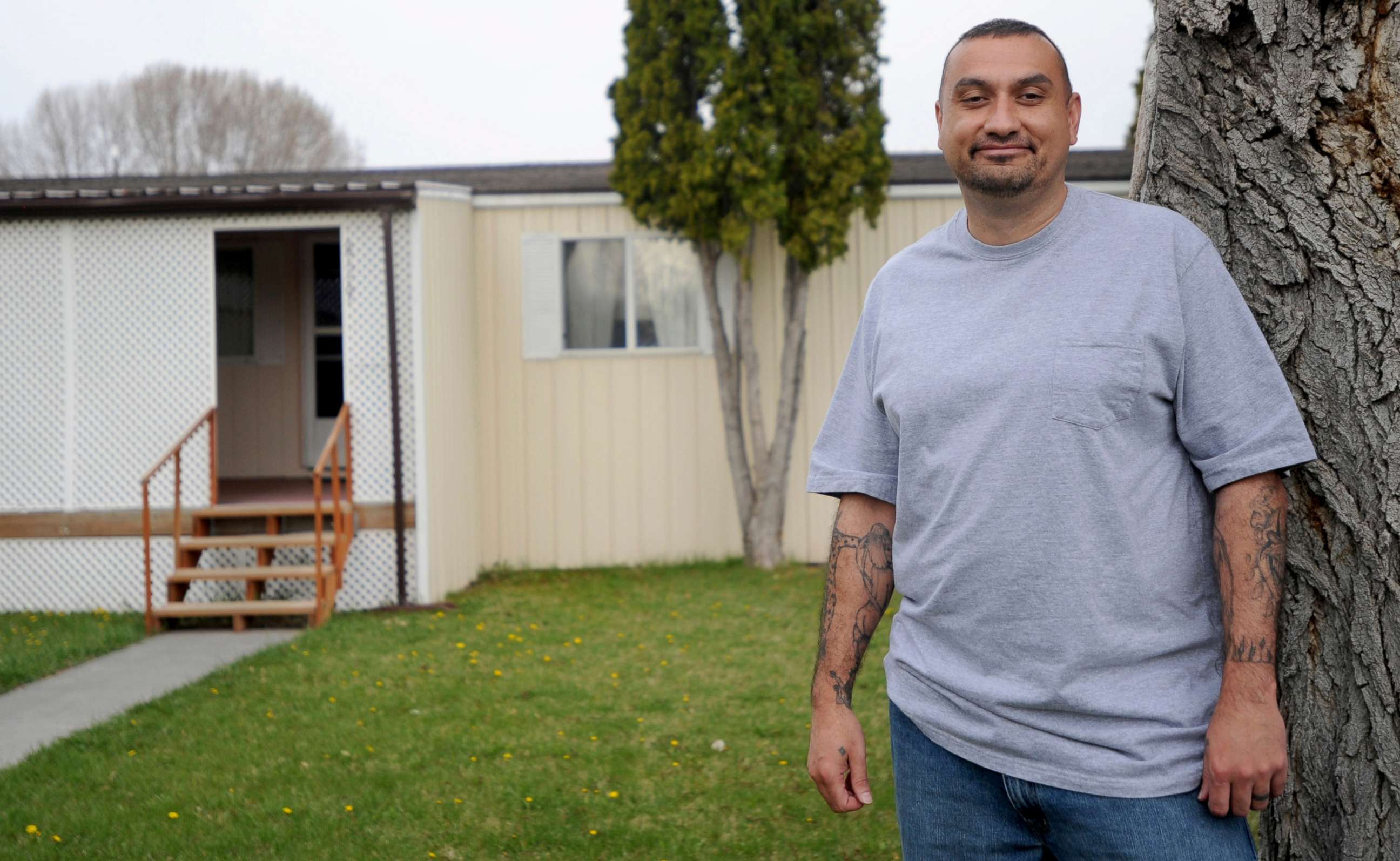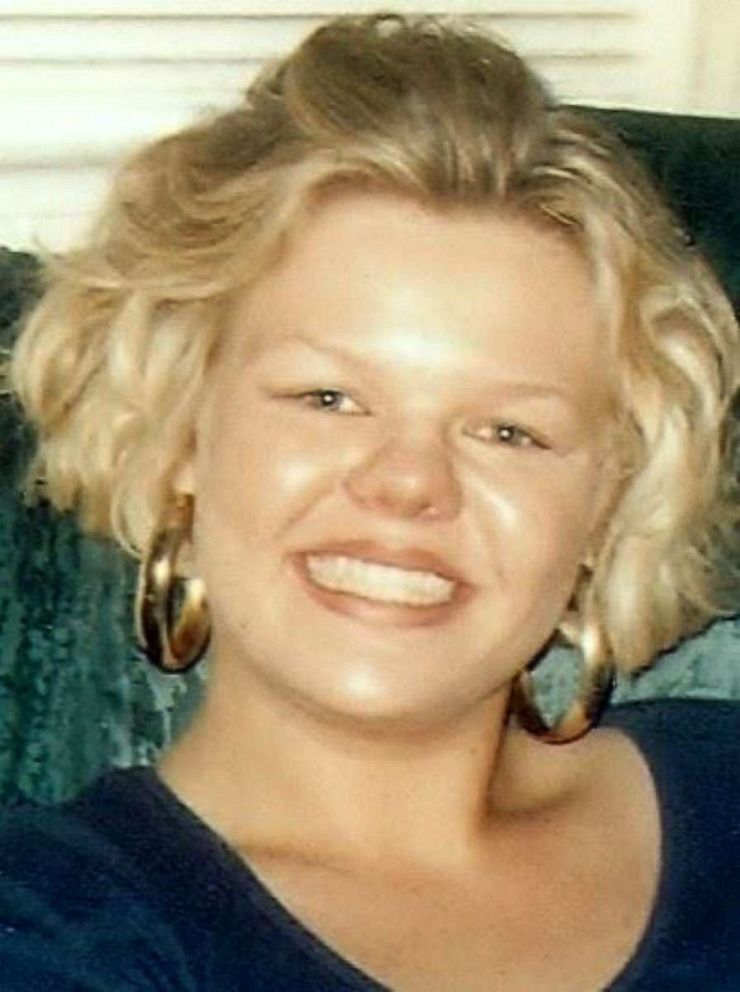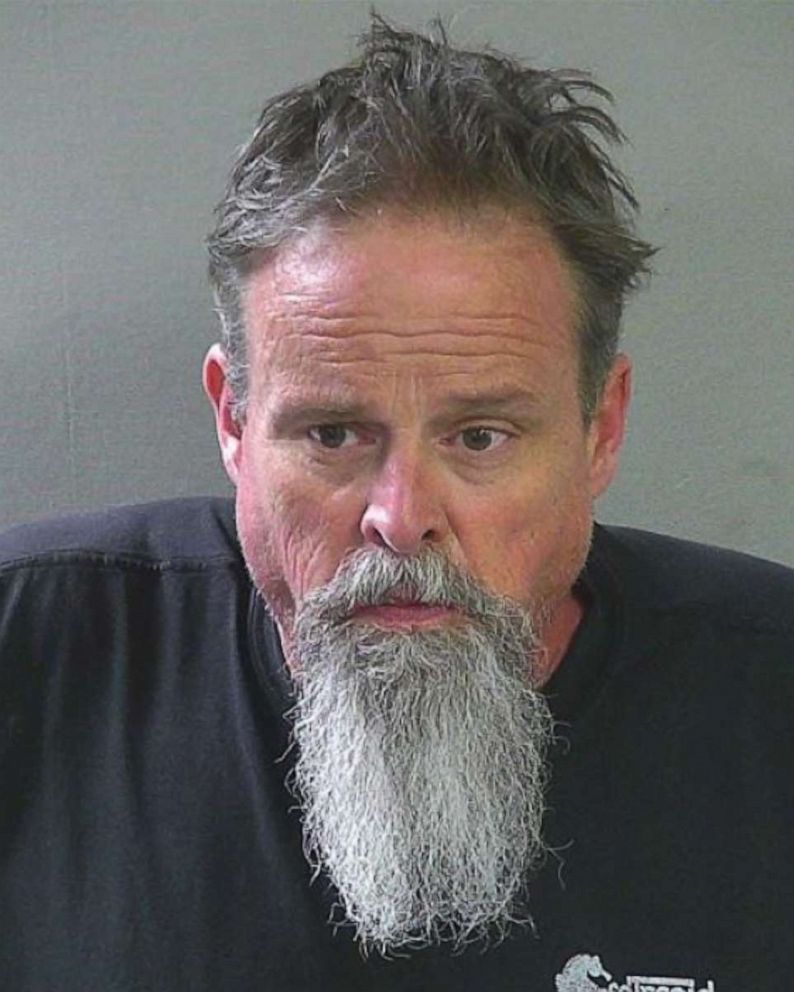'A new beginning': Man convicted of murder in the '90s exonerated thanks to genetic genealogy
Genetic genealogy found a new suspect in the 1996 killing of Angie Dodge.
In the 1990s, Christopher Tapp was sent to prison for the rape and murder of Idaho teen Angie Dodge.
Despite his DNA not matching evidence found at the crime scene, he was still convicted based on the theory that multiple people were involved in the crime.
On Wednesday, after decades of proclaiming his innocence and claiming his confession was coerced, Tapp was finally exonerated due to the novel DNA technique of genetic genealogy, which was used to find identify a new suspect in Dodge's murder.
Stepping out of the courthouse, Tapp told reporters, "I hope that things get learned from this mistake and I hope things get changed."
"I'm glad I was able to come out the other end and still smile and still be happy," he said.

"I accepted the fact that I was gonna be a convicted felon," Tapp said. "Now I don't ever have to worry about that. It's a new life, a new beginning, a new world for me. And I'm just gonna enjoy it every day."
Tapp added, "I hope nobody ever forgets Angie Dodge."
Mystery DNA and a coerced confession
The case dates back to June 13, 1996, when 18-year-old Dodge was raped and killed in her Idaho Falls apartment.

Semen and hair was collected at the scene and DNA testing showed they belonged to the same suspect, according to the Idaho Falls Police. Detectives canvassed the neighborhood in their search for the killer, but to no avail.
In January 1997, Tapp, then a 20-year-old living in Idaho Falls, confessed to being involved in the rape and murder, according to authorities.
His DNA didn't match the semen and hair samples but police said "an existing theory was that multiple people were involved and Tapp was suspected to have been one of those people."
Tapp -- a "kid" "scared for his life" -- sat through nine interrogations, his attorney, John Thomas, told ABC News.
"Tapp's confession matched details from the crime scene and included assertions that he had not acted alone," said police. "Based on his confessions, knowledge of the crime, and other facts that supported a theory that multiple people had been involved in the rape and murder, Tapp was convicted in 1998 by a jury."
No information from Tapp -- who is now 43 -- led to more arrests or the person who left behind DNA, police added.

A proclamation of innocence
In 2001, Tapp said his confession was coerced and that he was innocent, but Idaho's supreme court affirmed the conviction, police said. The Idaho Innocence Project took up Tapp's case as one of their first and pushed for his exoneration.
Tapp filed several petitions for post-conviction relief over the years, and in 2017, while a petition was pending, he made a plea deal to amend his sentence.
To secure the deal, Thomas presented new DNA evidence and argued that Tapp's confession was coerced.
In 1997, after being "coerced and pressured" by investigators, Tapp told police he held Dodge down by her wrists during the rape and murder, Thomas said. Dodge's hands were swabbed for DNA but were not tested until 2016; that test found DNA was only present from Dodge and the killer -- not Tapp, said Thomas. It was unclear why the evidence wasn't tested at the time.
In the 2017 deal, the rape conviction was vacated, Tapp's murder sentence was reduced to time served and he was freed, said Thomas.
New technology finds a new suspect
Idaho Falls police say the search for the mystery suspect who left DNA at the crime scene never stopped in the years after Dodge's killing.
In November 2018, police turned to genetic genealogy.
Genetic genealogy -- a novel technique that compares unknown DNA evidence to public genetic databases to identify suspects through their family members -- has been called a "game-changer" in the effort to crack cold cases.
I knew the suspect had to be a descendant of that marriage.
Since the arrest of the suspected "Golden State Killer" in April 2018, about 70 suspects have been identified through the technology, according to CeCe Moore, the chief genealogist at Parabon NanoLabs, which investigated the Dodge murder among others.
Moore, who also appeared as an expert in ABC News "20/20" episodes, said she started building family trees of people who shared DNA with the unknown suspect and with each other, and found where those intersected in one marriage. She was spurred on by Dodge's mother who inspired her to push thru this case even though it was so difficult.
"I knew the suspect had to be a descendant of that marriage, so I narrowed it down to six men who were descendants of that couple. And five of the six on that list lived over 1,000 miles away, didn't have any connection to Idaho that we could find. One of them did live in Idaho," Moore told ABC News.
In February, investigators surveilled the man who lived in Idaho, obtaining a wad of discarded chewing tobacco from him, said police.
That man not only was not a match to the DNA at the crime scene, but he was also found not to be close relative to the suspect, Moore said.
While Moore felt like she "was back to square one," she said she also was "aware of the fact there could be a missing descendant."

Moore remembered that one of the men in the family had gotten married early and then divorced. While there didn't appear to be a child from the marriage, she thought it was possible that a child was born shortly after they separated.
"I went back to my research and tried to find what happened to that woman... we finally found her by finding her mother's obituary, which listed her current name and listed a son," Moore said.
It turns out Moore's hunch was correct -- that son was from the first marriage but carried his stepfather's last name -- Dripps.
In May, detectives went to Caldwell, Idaho, to investigate Brian Dripps Sr.
Investigators recovered a cigarette butt Dripps threw out of his car window -- and the DNA on the cigarette butt was found to be a match to the semen and hair at the crime scene, police said.

As it turned out, Dripps lived across the street from Dodge when she was killed. Detectives even spoke to him five days after the slaying during a neighborhood canvass, police said.
But he moved away from Idaho Falls the year of the murder, police said.
Dripps, 53, was arrested on May 15 and charged with Dodge's murder and rape, police said. In a police interview, once confronted with the DNA evidence, he admitted to the crime and said he went into Dodge's apartment alone.
Dripps has not entered a plea and his attorney did not immediately respond to ABC News' request for comment. He has a motion hearing set for Thursday and a preliminary hearing on Aug. 7.
Also, in May of this year, a key witness in the case reportedly recanted her testimony, according to the Post-Register newspaper.
'The power of genetic genealogy'
Tapp, who was released from prison in 2017, is married and working at a local plastic bag factory, his lawyer said.
"He's doing well," his lawyer, Thomas told ABC News on Tuesday, but getting back his family's name will mean a lot to him.
I'm more excited and exhilarated about this than I think anything else.
"It is a huge thing for him and his mom. They're the last two Tapps of his particular line," he said. "He hasn't had any children. He's an only child for his mom."
"It's hard for me to fathom or believe it still," Tapp told ABC News hours before the exoneration hearing. "For me it's just the disappointment I've received over the last 22.5 years.... I just didn't know what was gonna happen, if the state or the judge or anybody would do the right thing."
On Wednesday afternoon, a judge approved prosecutors' motion for post-conviction relief, making Tapp the first person to be exonerated for murder thanks to genetic genealogy, said Moore.
Bonneville County Prosecuting Attorney Daniel Clark said he believed there was clear and convincing evidence of Tapp's innocence.
Tapp was accused of helping with the murder, not being the sole killer, and Clark says investigators believe Dripps' alleged confession was to acting alone.
Ethically "my obligation is to remedy that conviction," Clark told ABC News before the hearing. "That's a very sobering thing to be involved in, no doubt."
Moore called Tapp's case a highlight of her career.
"I'm more excited and exhilarated about this than I think anything else. It's just such an incredible feeling to be a part of clearing an innocent man's name," she said.
Moore believes genetic genealogy will help with more exonerations going forward.
"There's been so much focus put on arresting the violent criminals -- which is very important -- but I always thought there wasn't enough attention put on the fact that when we do that, we're clearing a lot of other potential persons of interest, or even suspects," Moore said.
"So it's been less formal with all the other cases, but there are many other cases where people's names have been cleared thanks to genetic genealogy, people who have carried burdens for years," she said. "So I think this is very important to demonstrate the power of genetic genealogy, not just to convict people, but also to exonerate."




